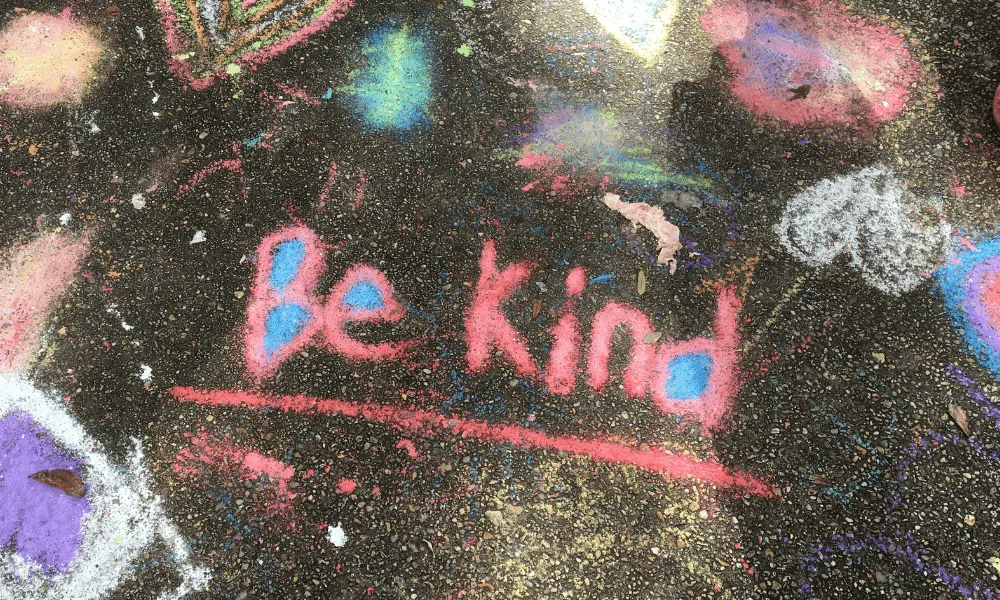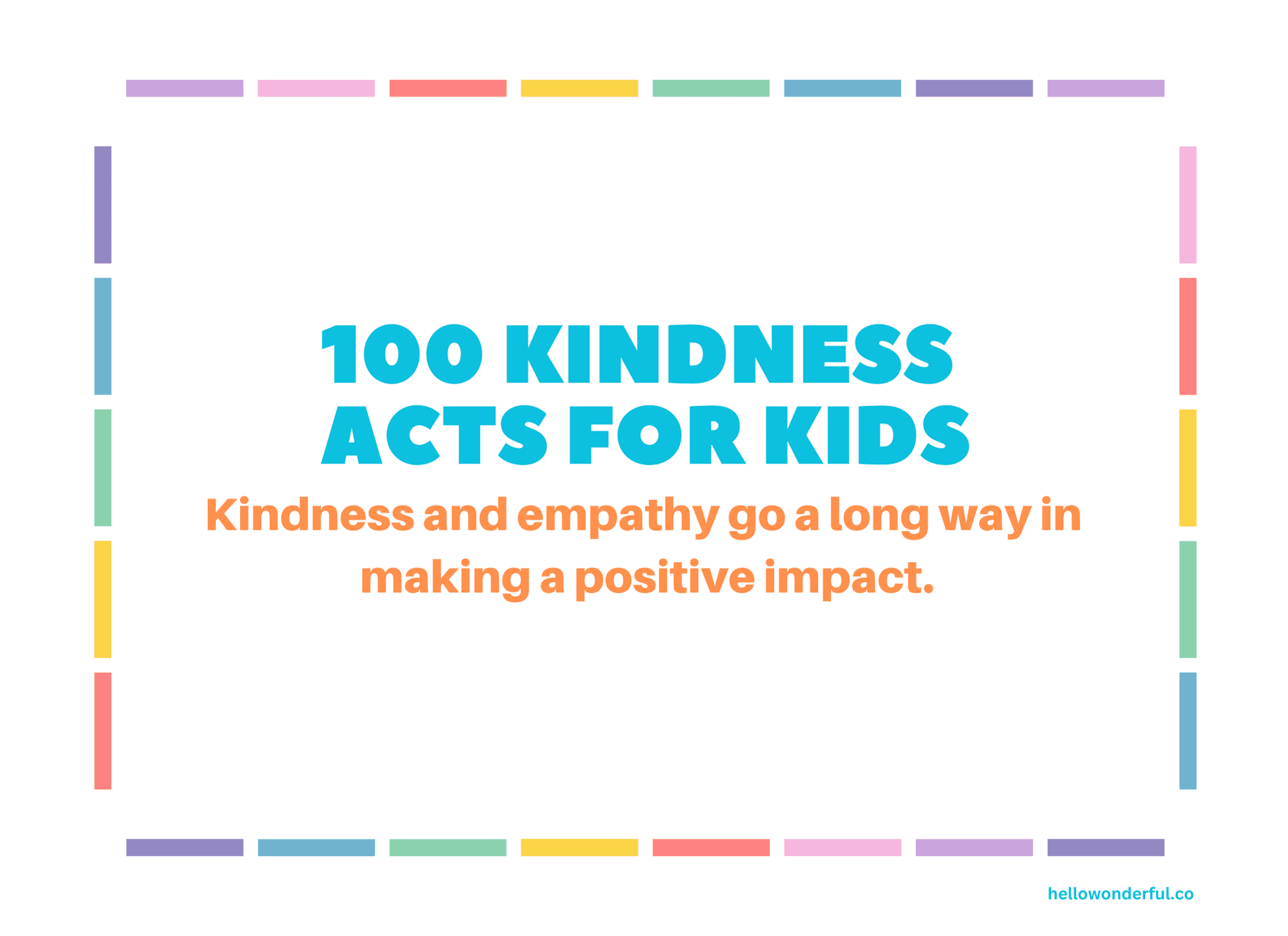100 Kindness Acts For Kids – With Printable Template


Kindness acts have been important for us as a family since my kids were little and could understand the importance of empathy. I started the rainbow kindness rock project with my daughter when she was just 7 years old. Since then she’s painted hundreds of kindness rocks and has raised over $10K for various charities.
This is just an example of how one small act of kindness (painting and leaving rocks for others to find and bring a smile) can mushroom into having a lasting impact on our communities.
We got such a positive response to our 105 Questions To Ask Kids (other than “how was your day”), that I’ve created 100 Kindness Acts for Kids.
You can save this post and see them right below!
Or you can print the PDF template. I would suggest framing these and keeping them visible in your home so your kids can easily reference them at any time!
Get the printable PDF of all 100 kindness acts!

Get the printable PDF of all 100 kindness acts!
Why are kindness acts good for kids?
Acts of kindness are important for kids for several reasons:
- Developing empathy: Practicing kindness helps children develop empathy, which is the ability to understand and share the feelings of others. This skill is essential for building strong relationships and fostering emotional intelligence.
- Building self-esteem: Engaging in acts of kindness can boost a child’s self-esteem and self-worth, as they feel good about themselves when they positively impact others.
- Fostering social skills: Kindness acts often involve interacting with others, which can help kids improve their social skills and form connections with their peers and community members.
- Encouraging positive behavior: When children perform acts of kindness, they are more likely to develop a habit of being kind, respectful, and considerate in their daily lives.
- Creating a supportive environment: Acts of kindness contribute to a positive and supportive atmosphere at school, home, and in the community. This environment encourages inclusivity, reduces bullying, and promotes overall well-being.
- Promoting resilience: Practicing kindness can help kids develop resilience, as they learn to cope with challenges and setbacks more effectively when they have a strong support system and are surrounded by positivity.
- Developing a sense ofresponsibility: By engaging in acts of kindness, children learn the importance of taking responsibility for their actions and the impact they can have on others.
- Enhancing teamwork and cooperation: Many acts of kindness involve working with others, which can help children develop their teamwork and cooperation skills.
- Instilling good values: Performing acts of kindness helps kids internalize values such as compassion, generosity, and gratitude, which contribute to their overall character development.
- Creating a better world: Encouraging kindness in children helps create a more caring society, as they grow up to be adults who value empathy and altruism.




